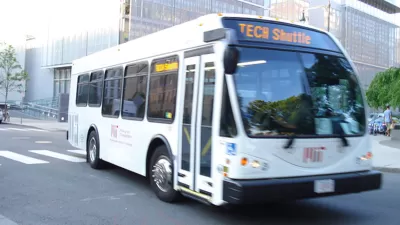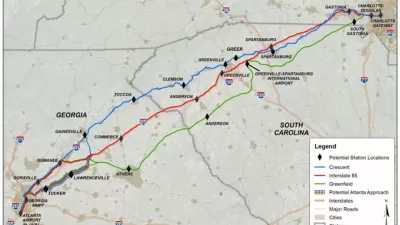Cities outside of the big coastal tech hubs have characteristics well suited for the high-tech sector.

Roy Bahat, Shauntel Garvey, and Nitin Pachisia explore the startup advantages of places other than Silicon Valley and New York — in particular, the Southern cities of Charlotte, Columbia, and Atlanta.
“The cities we visited represent a new breed of challenger to the geographic dominance of venture capital’s leading centers, who — if they can cover the table stakes — bring advantages the Valley may struggle to capture,” they say.
For one, these cities are racially diverse and also have diverse economies. In addition, people in these cities understand what it takes to overcome adversity, a trait that Bahat, Garvey, and Pachisia say is useful in the venture capital world:
If a startup can make it in Orangeburg, SC, a manufacturing town with a median household income of $29k, it can make it anywhere. Many founders in Silicon Valley have had it so good they can no longer smell money. Startups, unlike many other kinds of projects (like learning to play music), simply require the right timing and dosage of adversity.
To foster these markets, they say investors need to engage beyond financial contributions by participating in local events and mentoring and coaching.
Understanding the culture of and institutions important to a particular place is essential as well, with churches being one example. “More than one founder told us about the role The Creator plays in their startup’s creation. Baptist, AME, and Methodist churches have long undergirded economic development in these cities. Startups harness those trusted networks to find teammates and customers,” they note.
FULL STORY: Placing bets beyond the venture hubs of New York and Silicon Valley

Planetizen Federal Action Tracker
A weekly monitor of how Trump’s orders and actions are impacting planners and planning in America.

Maui's Vacation Rental Debate Turns Ugly
Verbal attacks, misinformation campaigns and fistfights plague a high-stakes debate to convert thousands of vacation rentals into long-term housing.

San Francisco Suspends Traffic Calming Amidst Record Deaths
Citing “a challenging fiscal landscape,” the city will cease the program on the heels of 42 traffic deaths, including 24 pedestrians.

Amtrak Rolls Out New Orleans to Alabama “Mardi Gras” Train
The new service will operate morning and evening departures between Mobile and New Orleans.

The Subversive Car-Free Guide to Trump's Great American Road Trip
Car-free ways to access Chicagoland’s best tourist attractions.

San Antonio and Austin are Fusing Into one Massive Megaregion
The region spanning the two central Texas cities is growing fast, posing challenges for local infrastructure and water supplies.
Urban Design for Planners 1: Software Tools
This six-course series explores essential urban design concepts using open source software and equips planners with the tools they need to participate fully in the urban design process.
Planning for Universal Design
Learn the tools for implementing Universal Design in planning regulations.
Heyer Gruel & Associates PA
JM Goldson LLC
Custer County Colorado
City of Camden Redevelopment Agency
City of Astoria
Transportation Research & Education Center (TREC) at Portland State University
Jefferson Parish Government
Camden Redevelopment Agency
City of Claremont





























